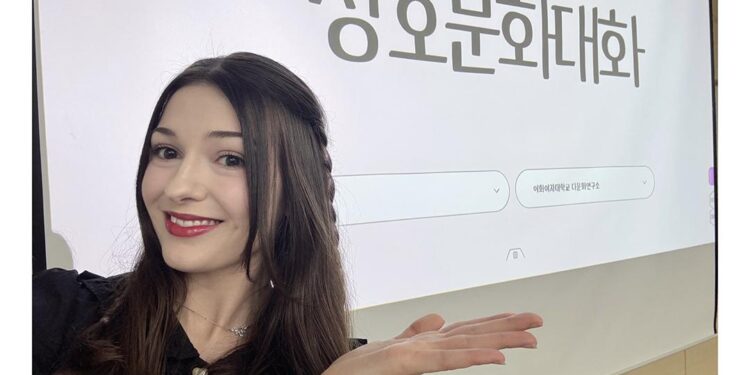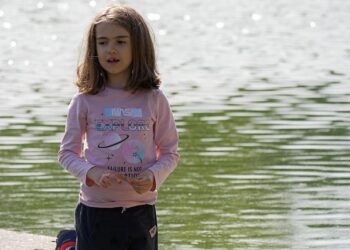As part of a growing trend in global education, George Washington University students are increasingly seizing opportunities to study abroad and immerse themselves in diverse cultures. This latest series, “Student Dispatches from Abroad: Switzerland,” offers an inside look at the experiences of GW students navigating academic life and cultural exploration in the heart of Europe. From the vantage point of the Swiss Alps to the bustling urban centers of Zurich and Geneva, these dispatches provide firsthand insights into how living abroad is shaping their academic journeys and personal growth.
Student Life and Cultural Immersion in Switzerland: Challenges and Opportunities
Adapting to student life in Switzerland presents a blend of unique challenges and enriching opportunities. One of the most frequently noted hurdles is navigating the country’s multilingual landscape, where German, French, Italian, and Romansh coexist. This linguistic diversity demands students to be flexible and open-minded, often requiring additional language classes or immersive practice to fully engage with local communities. Additionally, Swiss punctuality and formality in social and academic settings can initially feel strict, yet these customs underscore the value placed on respect and efficiency-a lesson many international students embrace over time.
Beyond overcoming obstacles, students relish the chance to immerse themselves in a cultural mosaic that offers vibrant traditions and innovative urban experiences. From exploring alpine festivals to participating in student-run clubs that celebrate both Swiss and international customs, the opportunities for growth extend far beyond the classroom. Below is a snapshot of activities that frequently help students blend academic rigor with cultural discovery:
- Language exchange meetups: Practice and improve Swiss national languages with native speakers.
- Outdoor expeditions: Hiking, skiing, or lake excursions that connect students to Switzerland’s natural beauty.
- Student cultural fairs: Events showcasing international cuisine, music, and art.
- Volunteering programs: Engage with local communities and gain meaningful intercultural experiences.
| Challenge | Opportunity | Tip for Students |
|---|---|---|
| Language barriers | Enhanced language skills and cross-cultural communication | Join conversation groups and be patient with progress |
| Cultural formality | Developing professionalism and global etiquette | Observe local customs and ask questions respectfully |
| High living costs | Learning financial management and budgeting | Seek student discounts and part-time work options |
Navigating Academic Expectations and Local Education Systems
Adjusting to the Swiss education system presented a unique set of challenges and opportunities for students from GW. The emphasis on independent study and critical thinking contrasts with the more lecture-driven formats familiar to many international students. Swiss universities also demand a high level of punctuality and preparation, requiring students to engage deeply with course material before attending seminars. This shift encouraged learners to develop stronger time management skills and a proactive approach to their studies, which many found essential for success in this rigorous academic environment.
Understanding the grading system was another key hurdle. Unlike the familiar A-F scale, Swiss institutions often use a 1-to-6 scale where a 4 is the minimum passing grade. This system, alongside distinct credit transfer processes, meant students had to adjust their expectations and carefully track their progress to meet both home university and host institution requirements. Key tips that emerged from student experiences include:
- Regular communication with professors to clarify assessment criteria.
- Utilizing campus resources such as tutoring centers and language workshops.
- Networking with both local and international peers for shared advice and support.
| Academic Feature | Swiss System | GW System |
|---|---|---|
| Grading Scale | 1 to 6 (4 = passing) | A-F (D = passing) |
| Credit Transfer | ECTS Credits | Semester Hours |
| Class Format | Seminars & independent work | Lectures & exams |
Top Tips for Budgeting and Making the Most of Your Swiss Experience
Switzerland’s reputation for being expensive is well-deserved, but smart budgeting can unlock incredible experiences without breaking the bank. Prioritize essentials like accommodation and transportation-opt for Swiss Travel Passes which provide unlimited access to trains, buses, and boats at a fixed cost, offering both convenience and savings. When it comes to dining, explore local supermarkets for fresh ingredients; preparing simple meals can be a game-changer for your wallet. Additionally, take advantage of free or low-cost activities such as hiking in the Swiss Alps, exploring public museums on discount days, or attending university events that welcome international students.
Here’s a quick budget breakdown to help you manage your expenses efficiently:
| Category | Estimated Monthly Cost (CHF) | Tips |
|---|---|---|
| Accommodation | 700-1,200 | Student dorms or shared flats |
| Food | 300-450 | Cook at home, shop at Migros or Coop |
| Transport | 75-150 | Swiss Travel Pass or regional passes |
| Entertainment & Extras | 100-200 | Free hiking, student discounts |
- Connect with locals and fellow students: Not only does this enhance your cultural experience, but locals often share tips on budget-friendly events and secret spots.
- Plan visits during off-peak seasons: Costs for travel and accommodation can drop significantly outside of high tourist periods.
- Utilize student discounts: Many attractions and transport options offer reduced rates with your student ID-never travel without it!
The Way Forward
As students return from their studies abroad in Switzerland, their experiences offer invaluable insights into the cultural and academic landscapes of this unique destination. These dispatches not only highlight the opportunities and challenges faced by students overseas but also underscore the importance of global engagement in higher education. GW Today remains committed to bringing these stories to the forefront, shedding light on the diverse perspectives that shape our university’s international community.
















